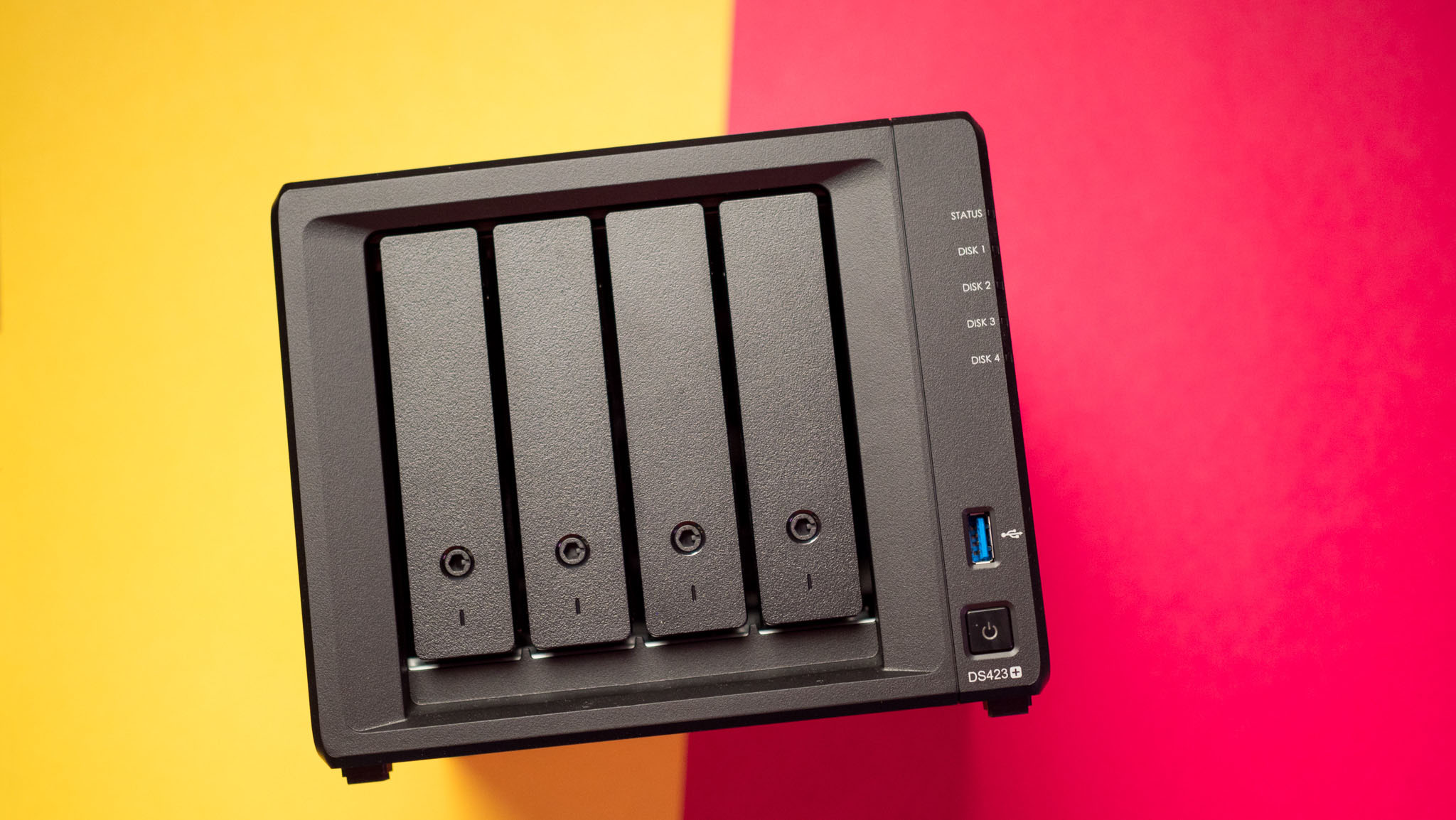
Synology knows how to make a great home NAS server, and in the last 12 months, the brand has diversified its portfolio quite significantly. The brand's strategy is similar to phone manufacturers like Xiaomi that roll out several devices at similar price points, with a unique feature to differentiate the phone from its siblings.
That's the best way to think of the DiskStation DS423+. The 4-bay NAS server sits in the middle of the brand's Plus portfolio, but unlike the DiskStation DS723+ or DS923+, it doesn't run the AMD Ryzen R1600 — it uses Intel's Celeron J4125 instead. That's the same chipset that was used in the DiskStation DS920+ and other models in the DSx20 series, so it is a known quantity.
And by using Intel hardware, Synology is providing a NAS server that has an integrated GPU, making it a great choice for Plex media streaming. If anything, the DS423+ is nearly identical to the DS920+, but it doesn't have an eSATA port, there's just 2GB of RAM out of the box, and you don't get multi-Gigabit connectivity.
I used the NAS alongside the DS723+ and DS923+, and if you're looking to pick up a new NAS server, this is what you need to know about the DiskStation DS423+.
Synology DiskStation DS423+: Pricing and launch date
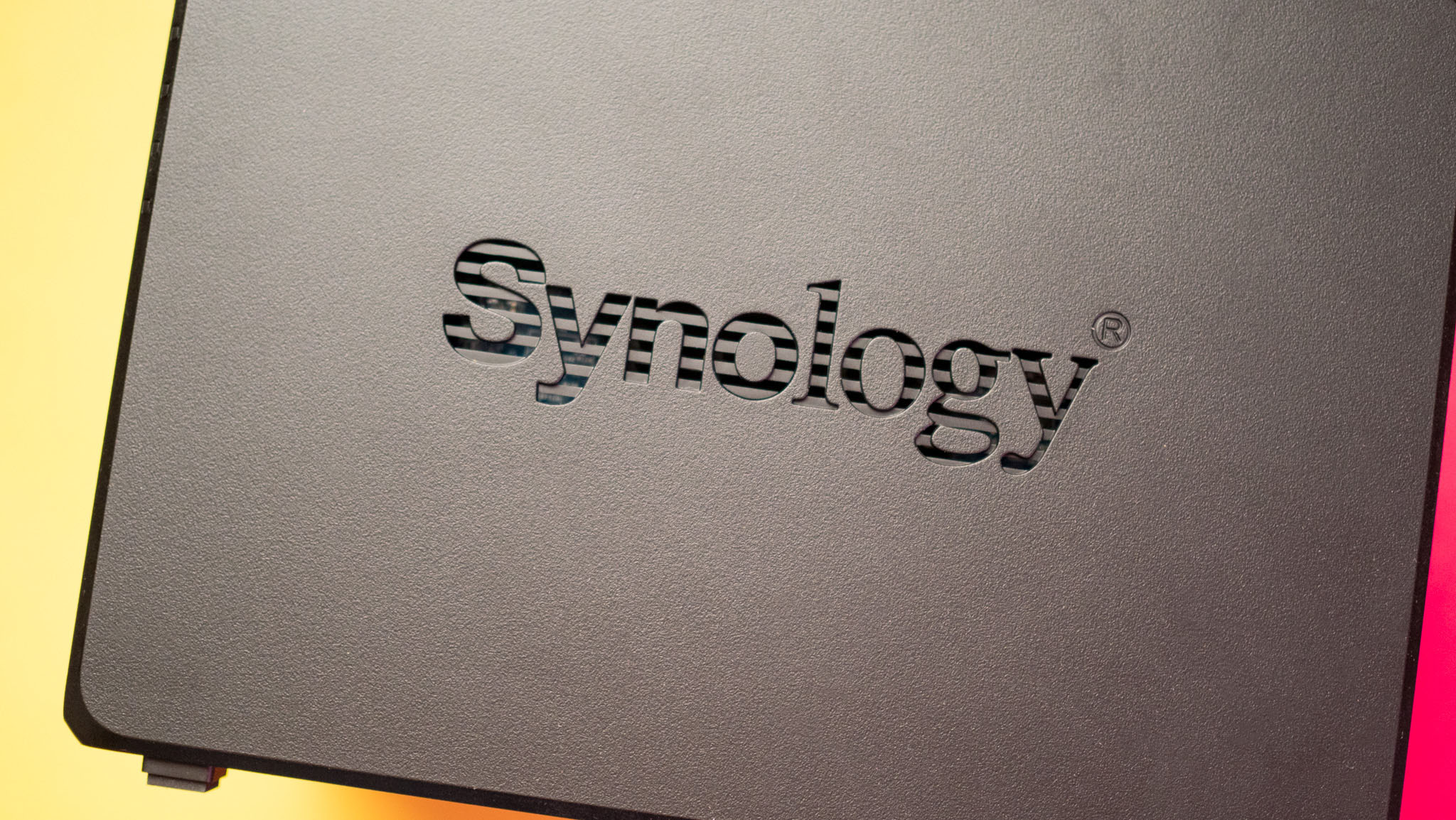
Synology launched the DiskStation DS423+ in early 2023, and the NAS is now available globally. It is available for $514 on Amazon, but you'll be able to get your hands on it for the listed $499 price at B&H as well as Newegg. The NAS comes with a standard three-year warranty.
Synology DiskStation DS423+: Design and features
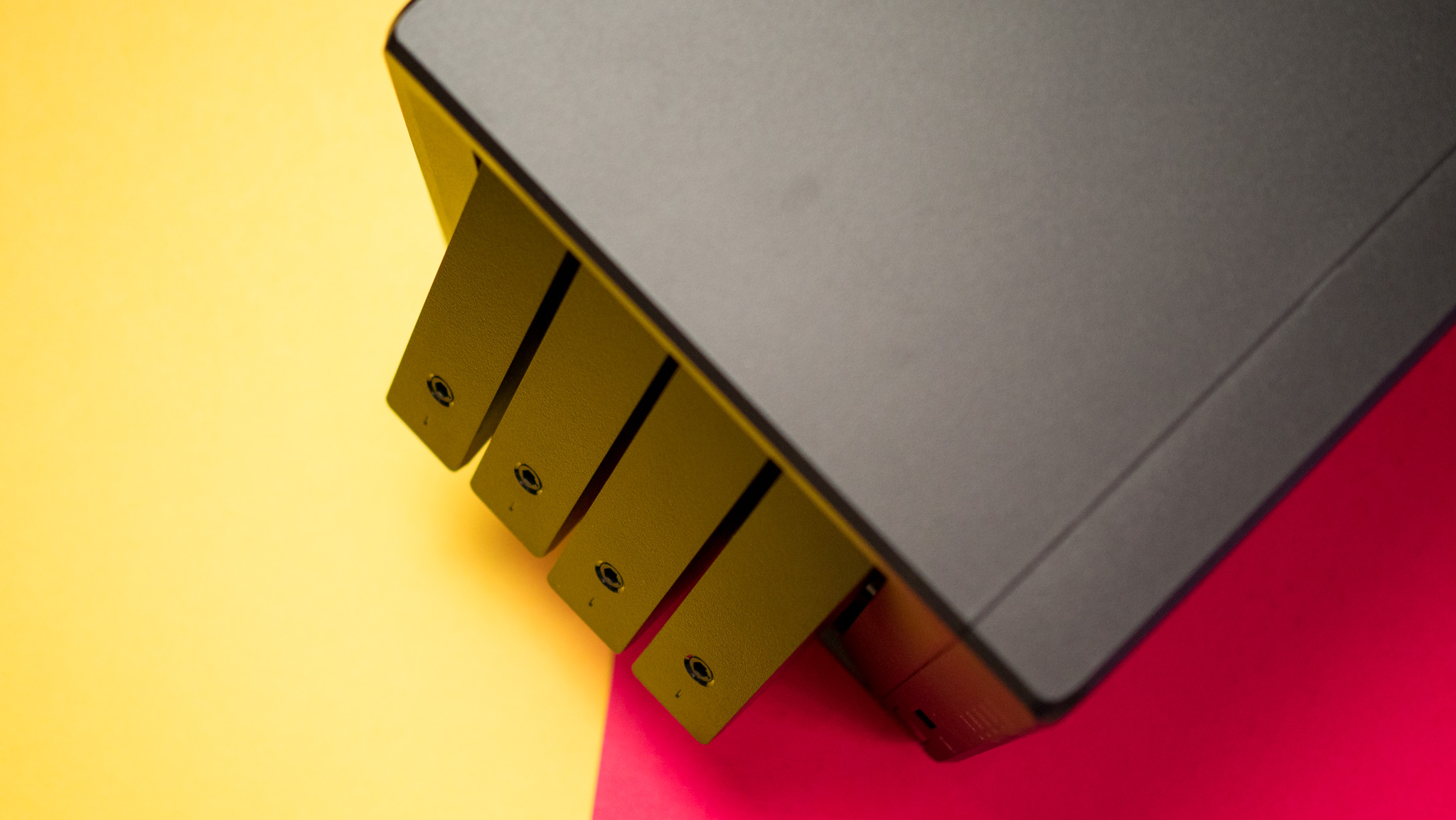
I'm not going to talk about the design too much as the DiskStation DS423+ is virtually identical to the DS923+. Synology has an established design language, and the brand doesn't like to make any changes. That said, the design blends in easily, and it has good ventilation thanks to grilles on the sides that deliver passive airflow, and dual 92mm fans at the back that run quiet.
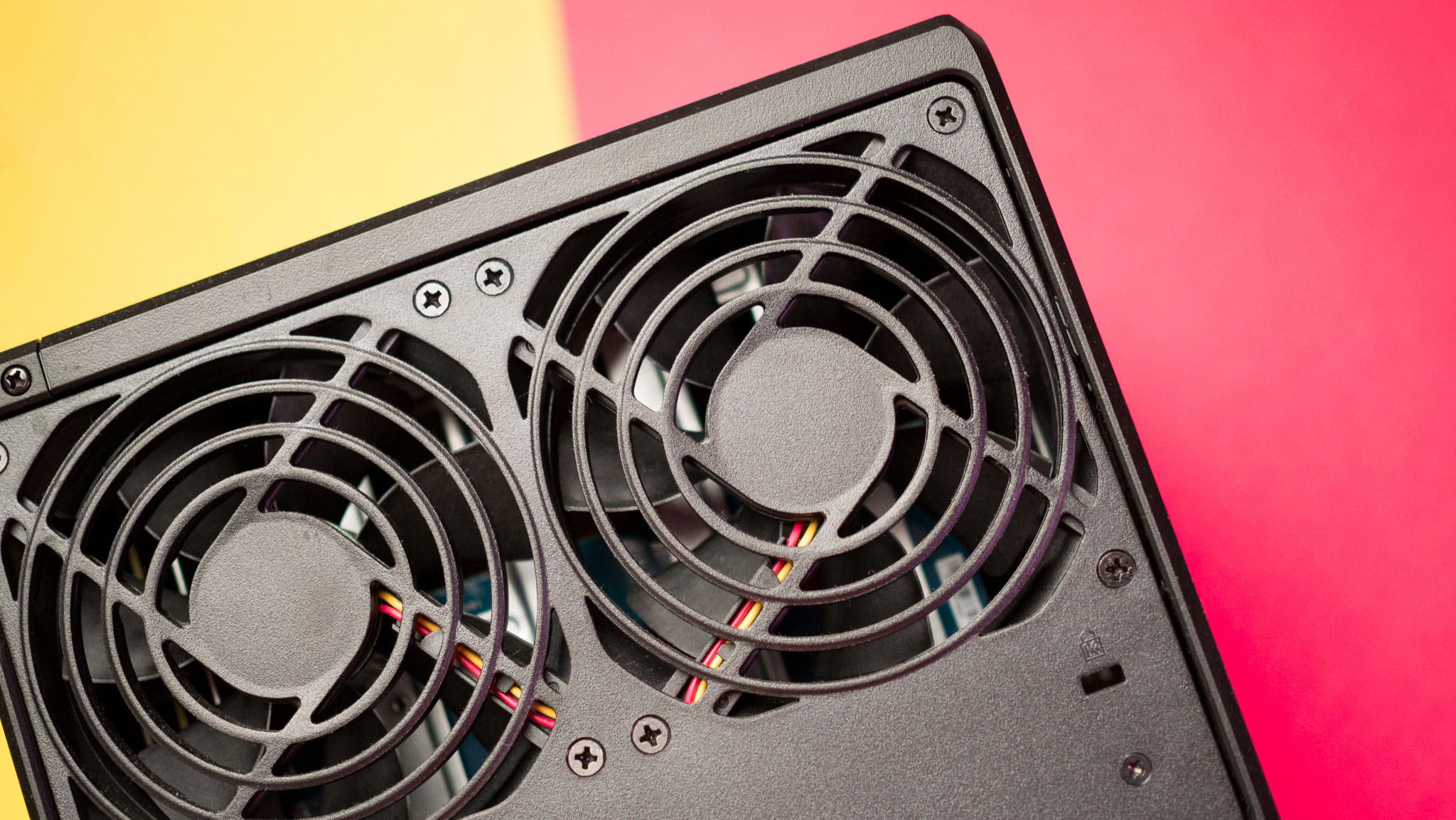
The fans are only audible when the NAS is under heavy load, and even then, they don't really get loud. There are four drive bays at the front, and you can slot in 3.5-inch hard drives without any tools. You get LED indicators for the HDDs and an overall status indicator light to the right, and the DS423+ branding along with the power button is located at the bottom.
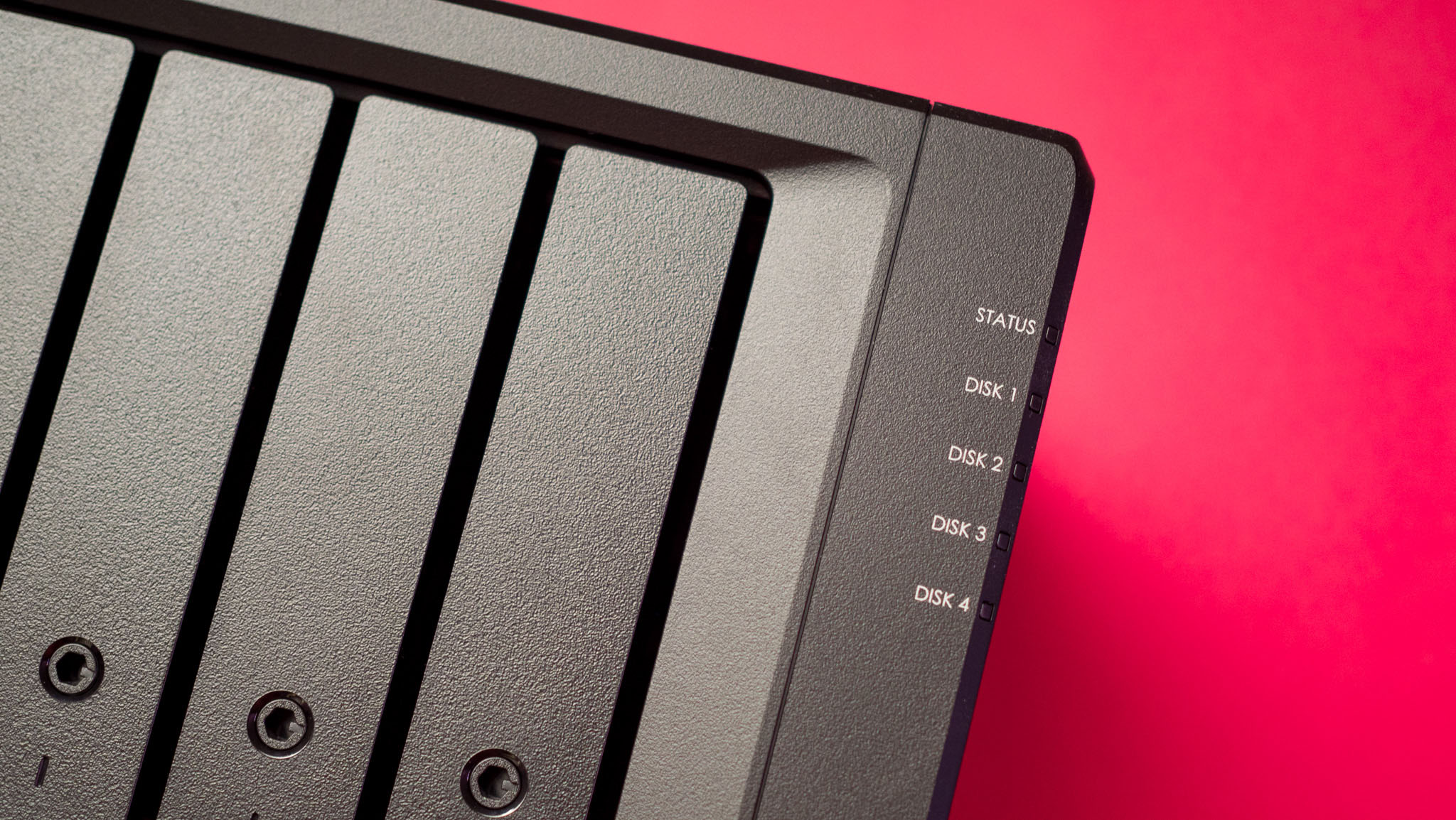
The unit itself doesn't take up too much room, and as is the case with every NAS server, you'll need to clean it regularly to ensure dust doesn't get inside the chassis. I just power down the NAS and use a handheld vacuum to clean the vents along the sides and the back.
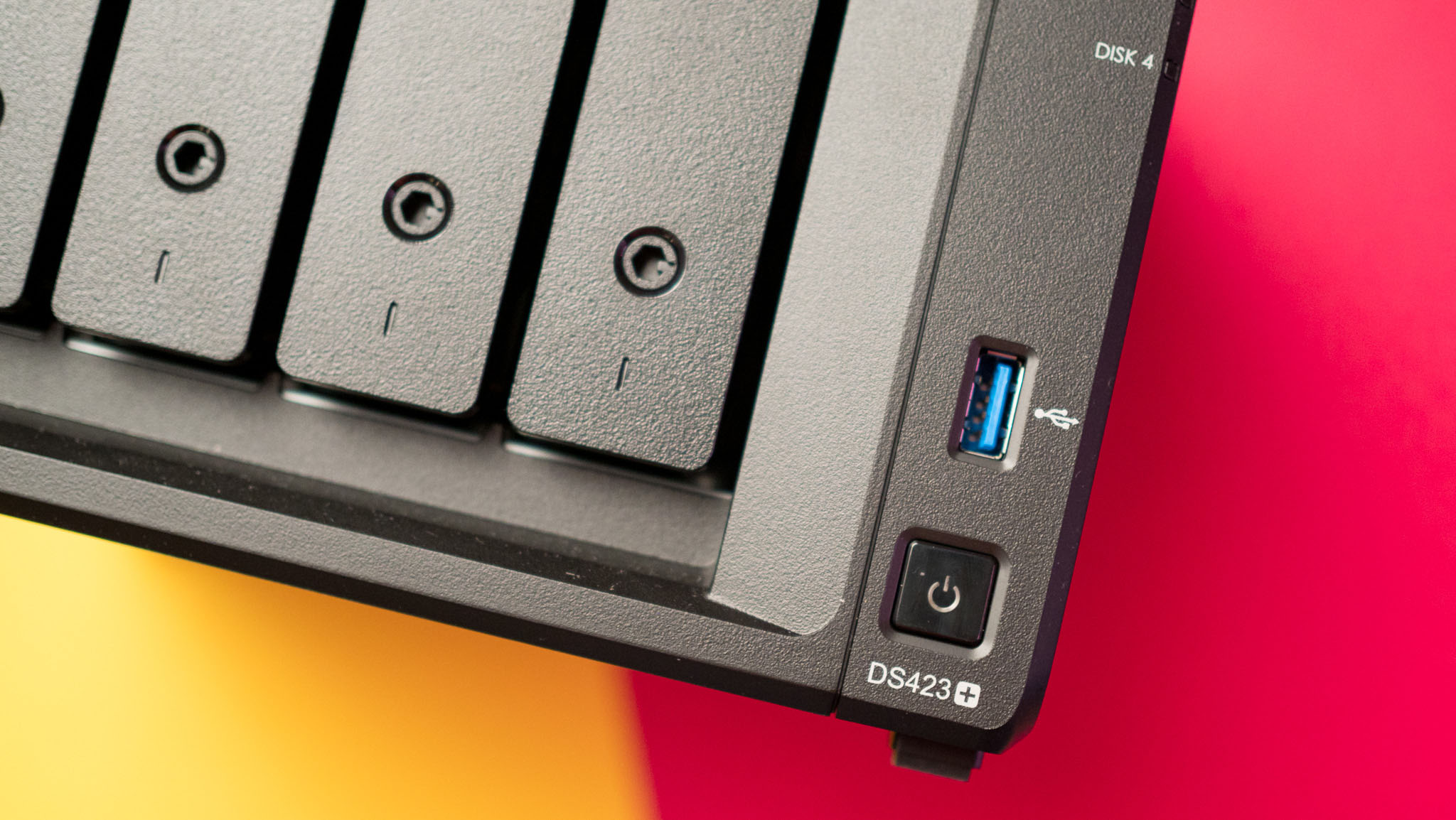
While the design won't win any awards, it provides a reliable housing for the hard drives, and that's basically what you need a NAS to do, so I don't have any negatives here.
Synology DiskStation DS423+: Connectivity
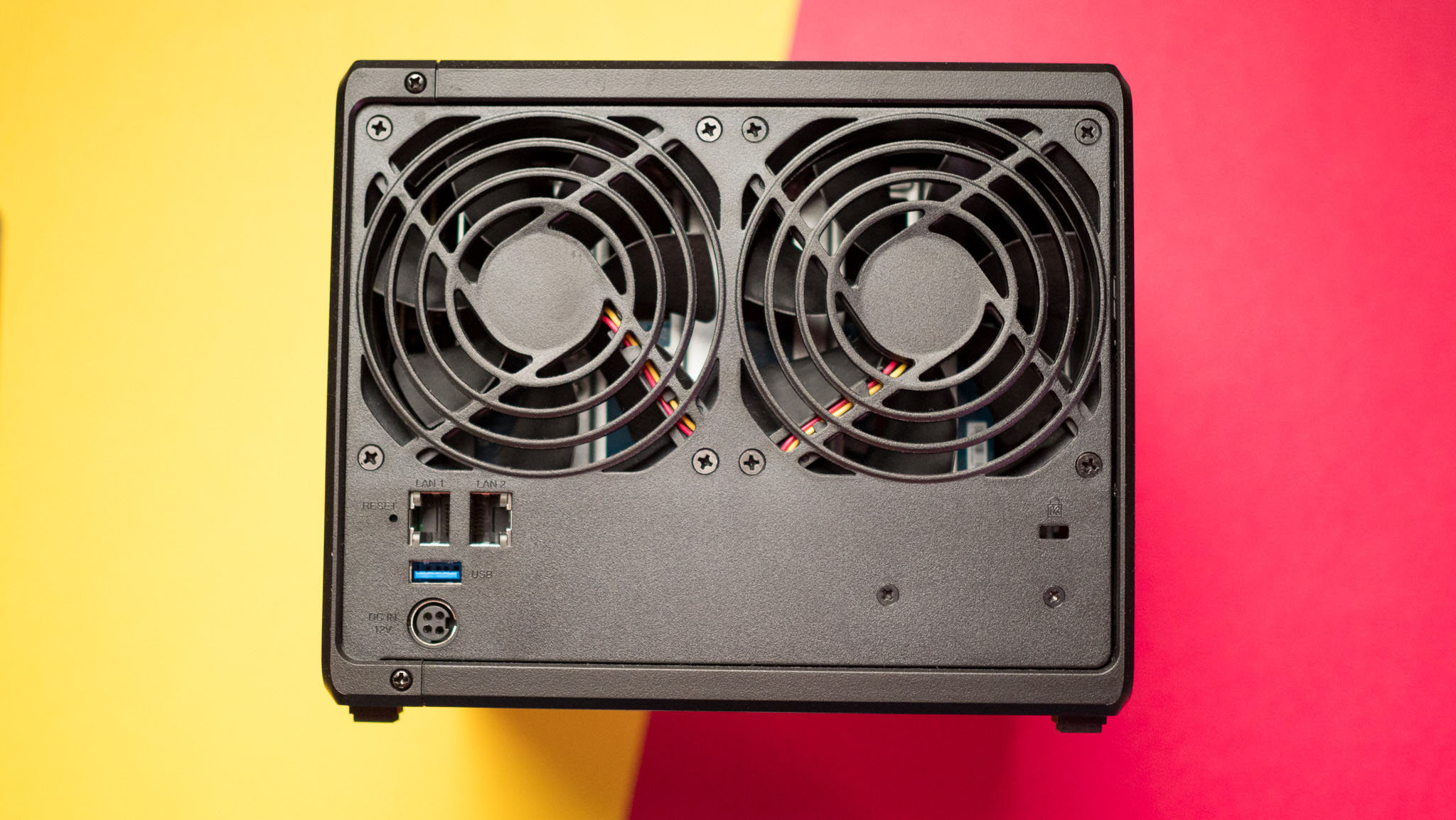
The DiskStation DS423+ has dual Gigabit Ethernet ports at the back, and they can be linked together via Link Aggregation. Most NAS manufacturers have switched to 2.5GbE ports as standard in this segment, but Synology doesn't see the value in providing multi-Gigabit connectivity, so you're limited to Gigabit Ethernet.
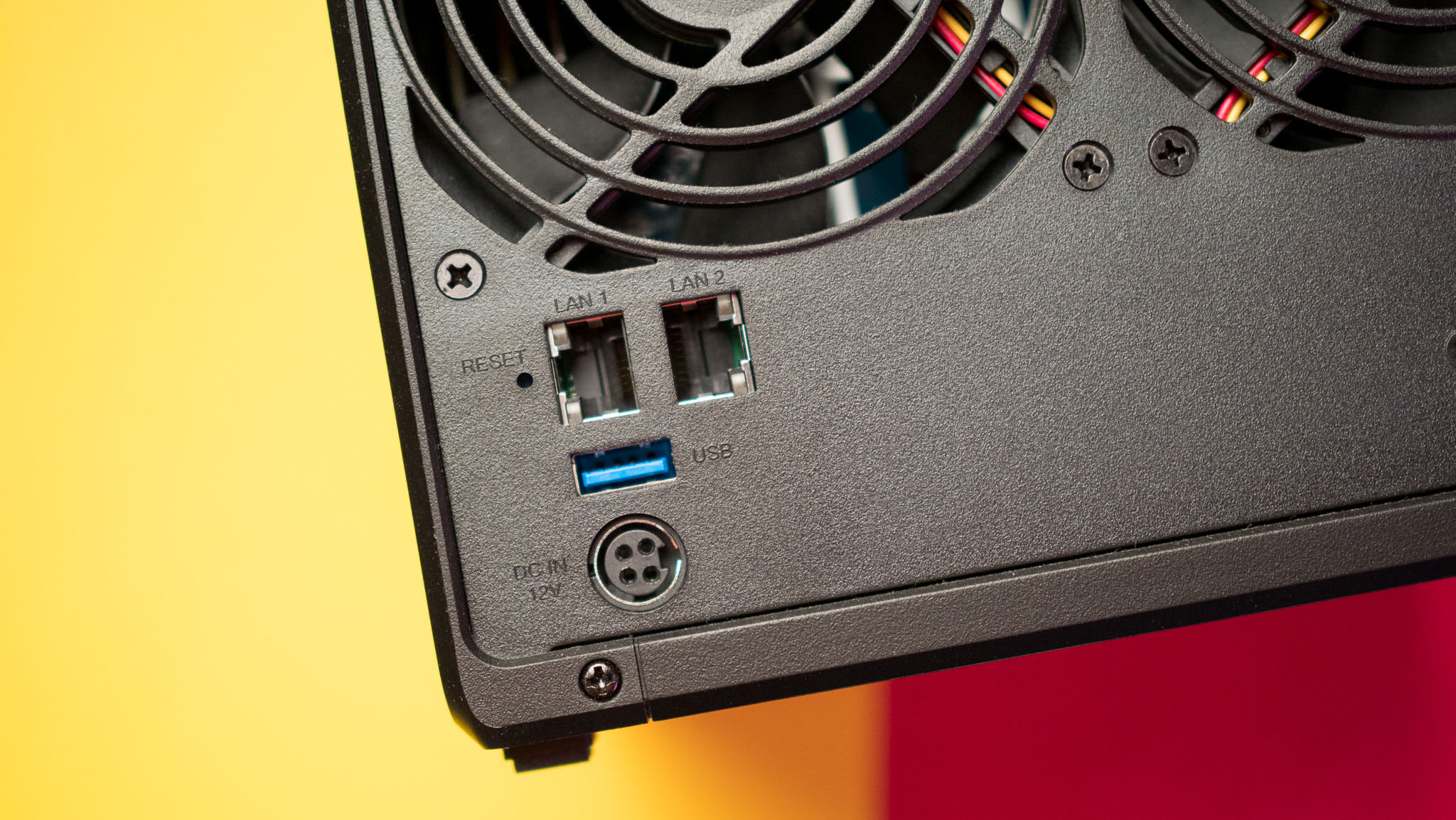
With multi-Gigabit internet connections now a reality, it is shortsighted from Synology to not provide at least 2.5GbE as standard on its Plus models. What's more egregious is that the DS423+ misses out on PCIe connectivity, so there isn't a way to add a 2.5GbE or 10GbE networking card should you wish to do so in the future — you'll need to get the DS923+ if you want to be able to switch.
You get dual USB-A ports, and other than that, there isn't much else on the DS423+. I would have liked to see an eSATA port here as it would have made the NAS much more extensible, but again, that feature is missing.
Synology DiskStation DS423+: Performance
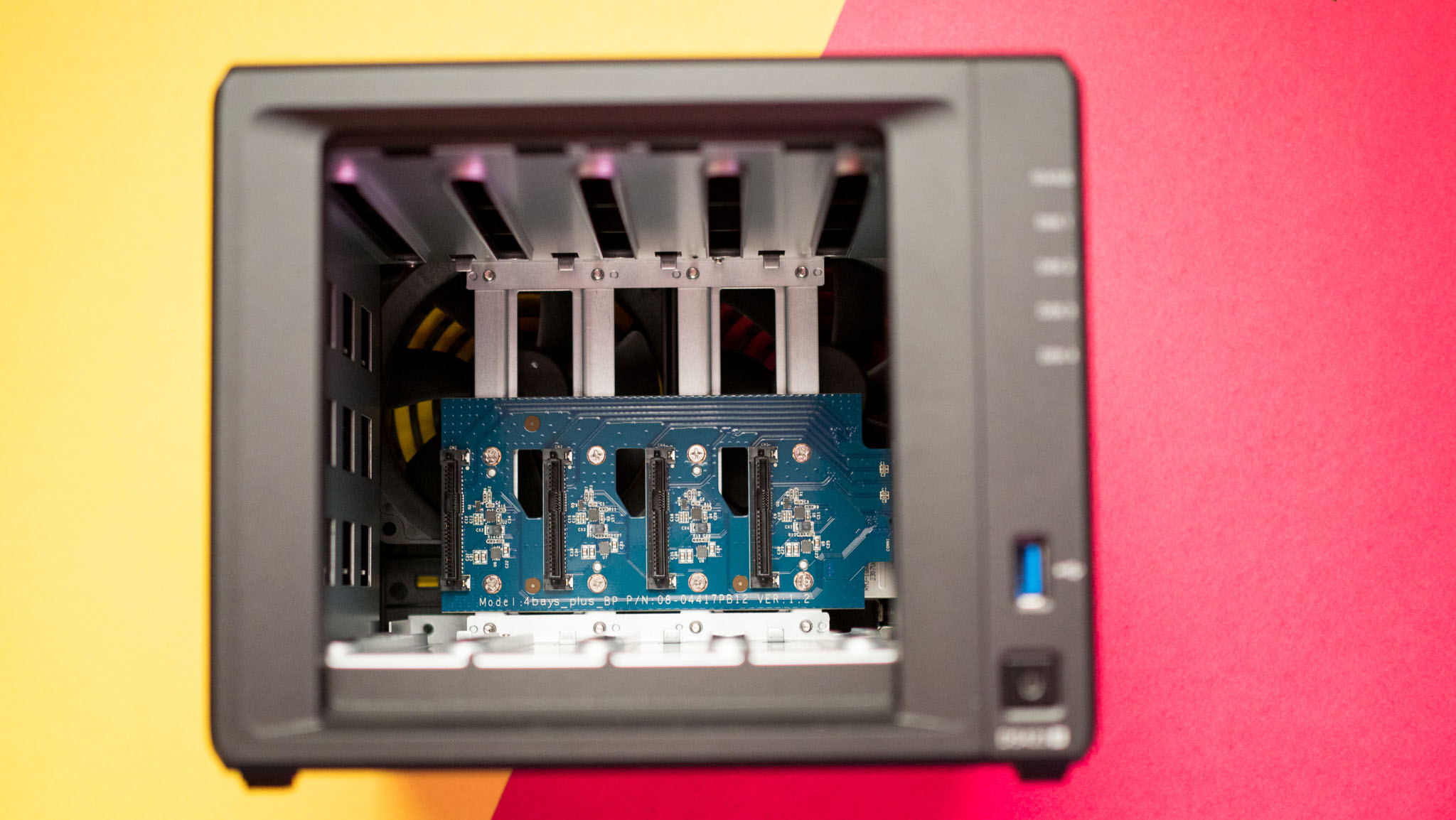
A lot of what I wrote in my DiskStation DS920+ review is relevant here, because the DS423+ is effectively the same model with less RAM and no extensibility. If you have the DS920+, there really is no reason to consider the DS423+ — if anything, you have the better server.
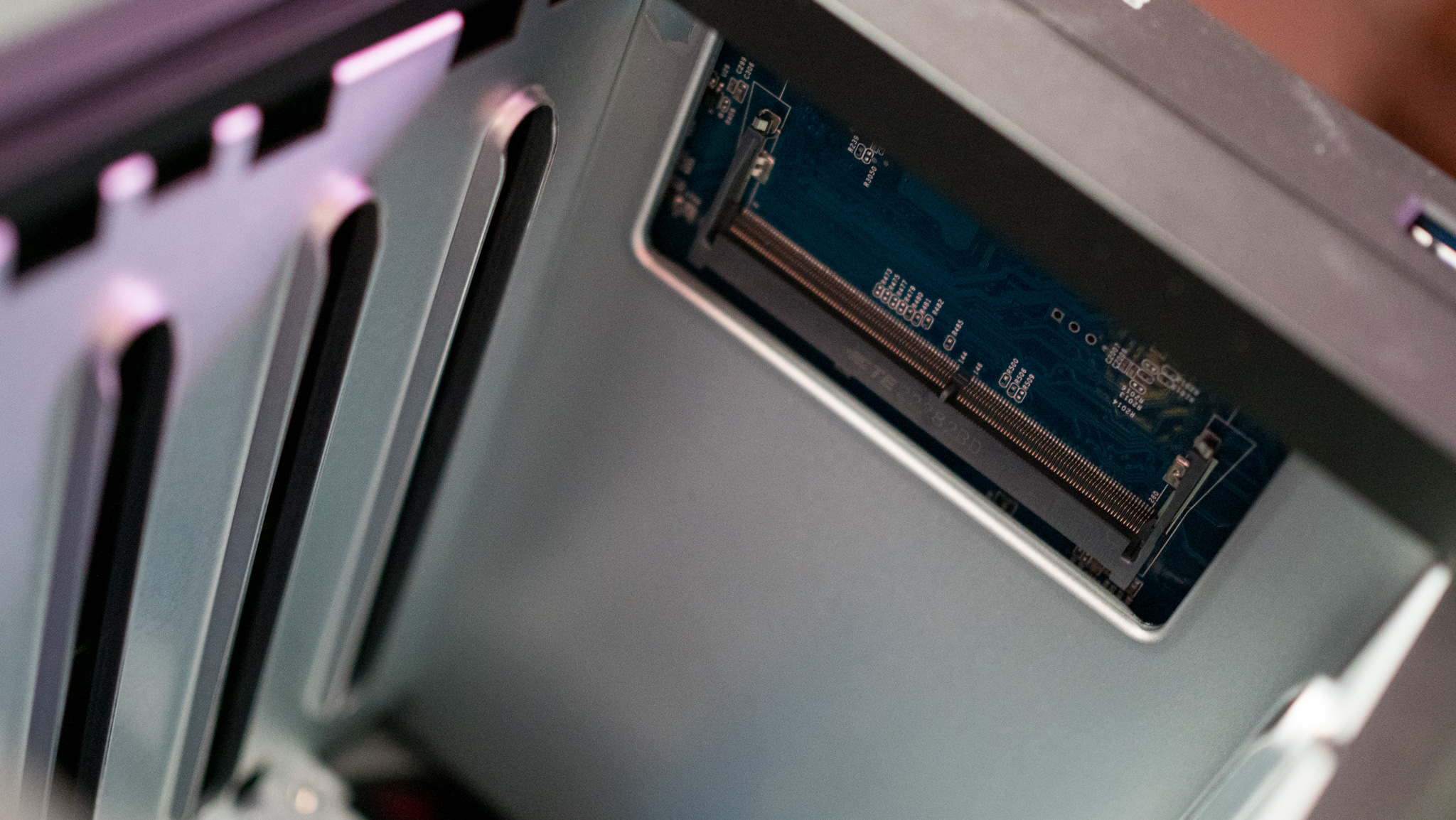
That said, the DS423+ is just as reliable, and even though it has just 2GB of RAM, it runs the web-based DiskStation Manager (DSM) OS without any issues whatsoever. You will need to add another RAM module if you intend to run a lot of containers that utilize memory, but in regular use with the likes of Plex and other utilities installed, the memory is more than adequate.
Let's start with the basics: the DS423+ is powered by Intel's 64-bit quad-core Celeron J4125, and it goes up to 2.0GHz. You get 2GB of RAM that's soldered to the mainboard, and there's a SO-DIMM slot available if you need to increase the memory. This takes in an additional 4GB, so the total memory on the NAS goes up to 6GB.
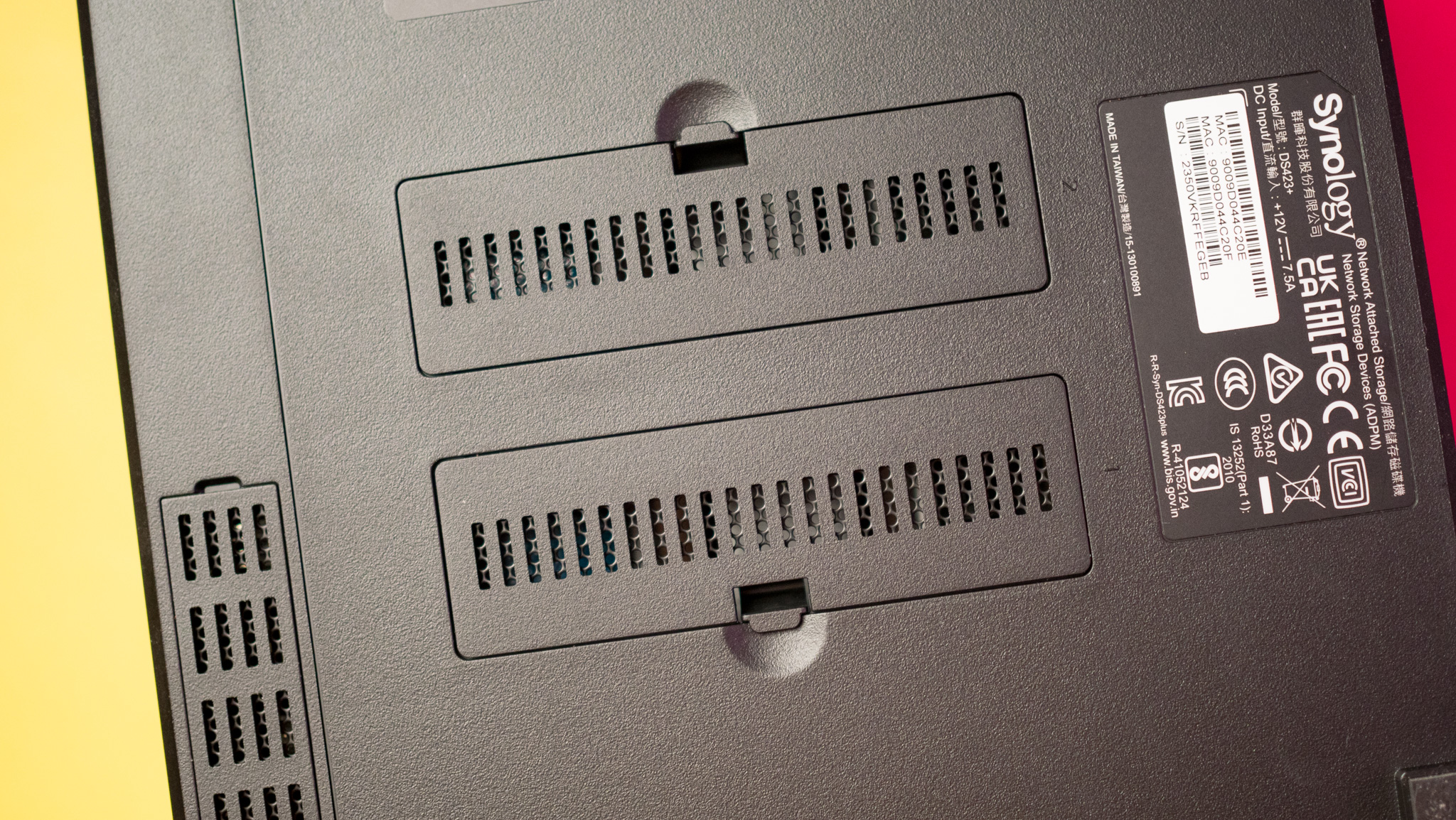
There are two M.2 slots at the bottom, and unlike the DS920+, you can actually use these drives to store data. The DS423+ houses up to 18TB drives in the drive bays, and if you're eyeing this NAS, I'd suggest getting 6TB IronWolf drives or higher. I've been using a dozen IronWolf drives for the better part of a decade now, and they've been reliable. They're also on the official drive list, along with the best NAS hard drives from WD and Toshiba.
In daily use, there are no issues with the DS423+. The NAS runs DSM 7.2 without breaking a sweat, and Synology's software is the reason why its NAS servers sell so well. You get an extensive suite of features, and as this is the Plus model, you don't miss out on any software services — you can run containers, virtual machines, and just about anything the brand offers in this segment.
The best use case for this particular NAS is as a Plex media server. While a native Plex client is available on all NAS servers, the DS923+ gets hardware-assisted transcoding thanks to the integrated GPU, and that is a huge deal. You'll need to use Plex Pass to take advantage of the feature, and if you've got an older media library and have to transcode content before sending it to client devices, the DS423+ is the default choice.
The NAS does a great job in other areas as well, and is a good choice if you want to back up photos and videos from your phones and documents from your Windows and macOS machines. The software suite is the best in the industry, and while the hardware clearly has limitations, it's the robustness of the software that makes the DS423+ a great product.
Synology DiskStation DS423+: The competition
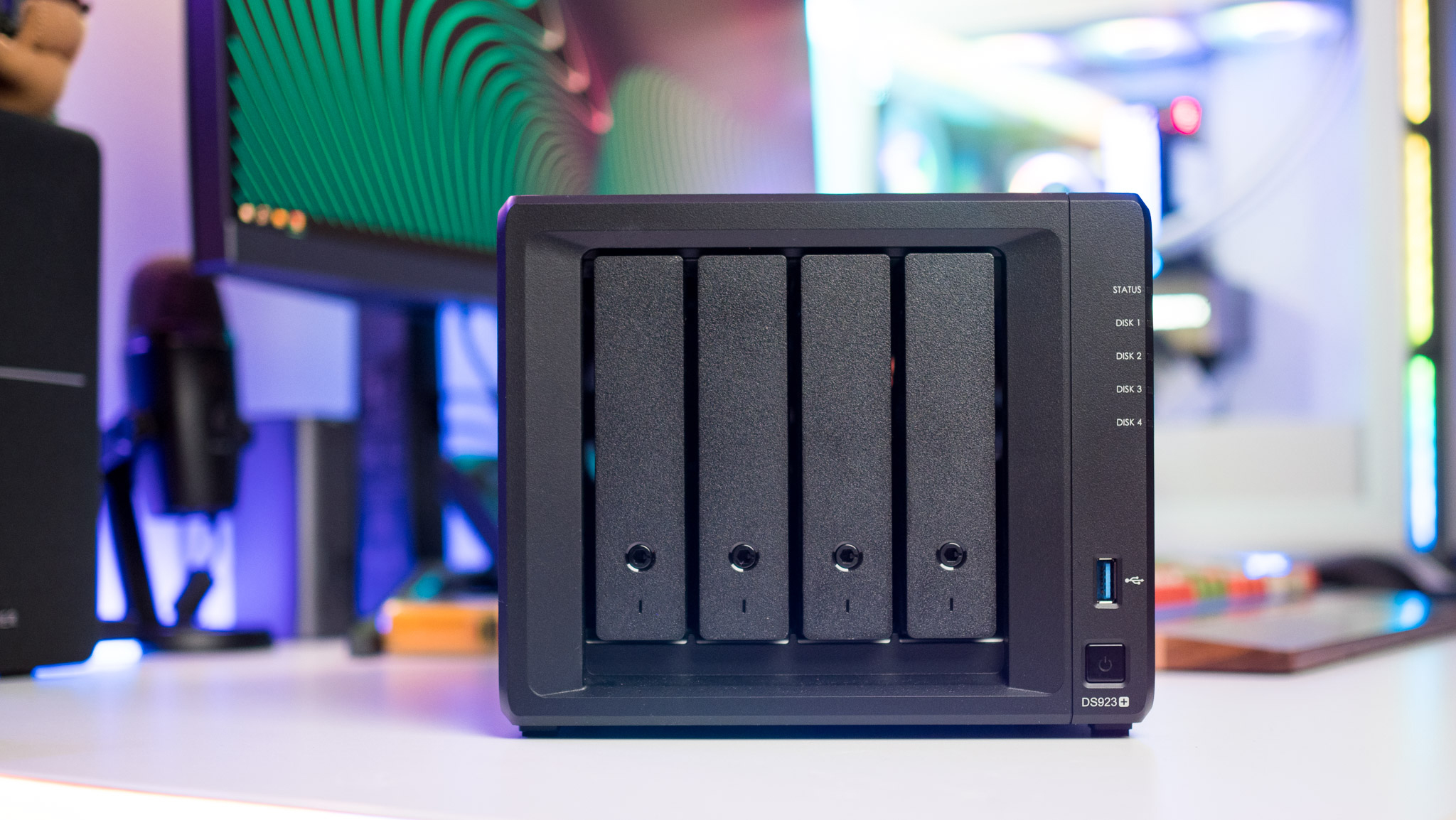
If you don't need some of the advanced features and just want a 4-bay home server to store data and stream media, the regular DiskStation DS423 is a great alternative. The DS423 costs just $369, and that's a much better value considering you still get all the software features. It also has 2GB of RAM, and while the Realtek hardware doesn't have Plex transcodes, it does a good job streaming high bitrate media content. If you don't need to transcode, the DS423 is a better choice.
But if you need the extensibility of eSATA and want to add a 10GbE networking card later on, you will need to consider the DiskStation DS923+. It is available for $599, but you get 4GB of RAM, and arguably better hardware in the Ryzen R1600. The downside is that you miss out on Plex transcodes; that is limited to Intel hardware, so if this is a requirement, the DS423+ is the way to go. If you don't need the feature, I highly suggest getting the DS923+ instead — it is my go-to choice for a 4-bay NAS.
Synology DiskStation DS423+: Should you buy it?
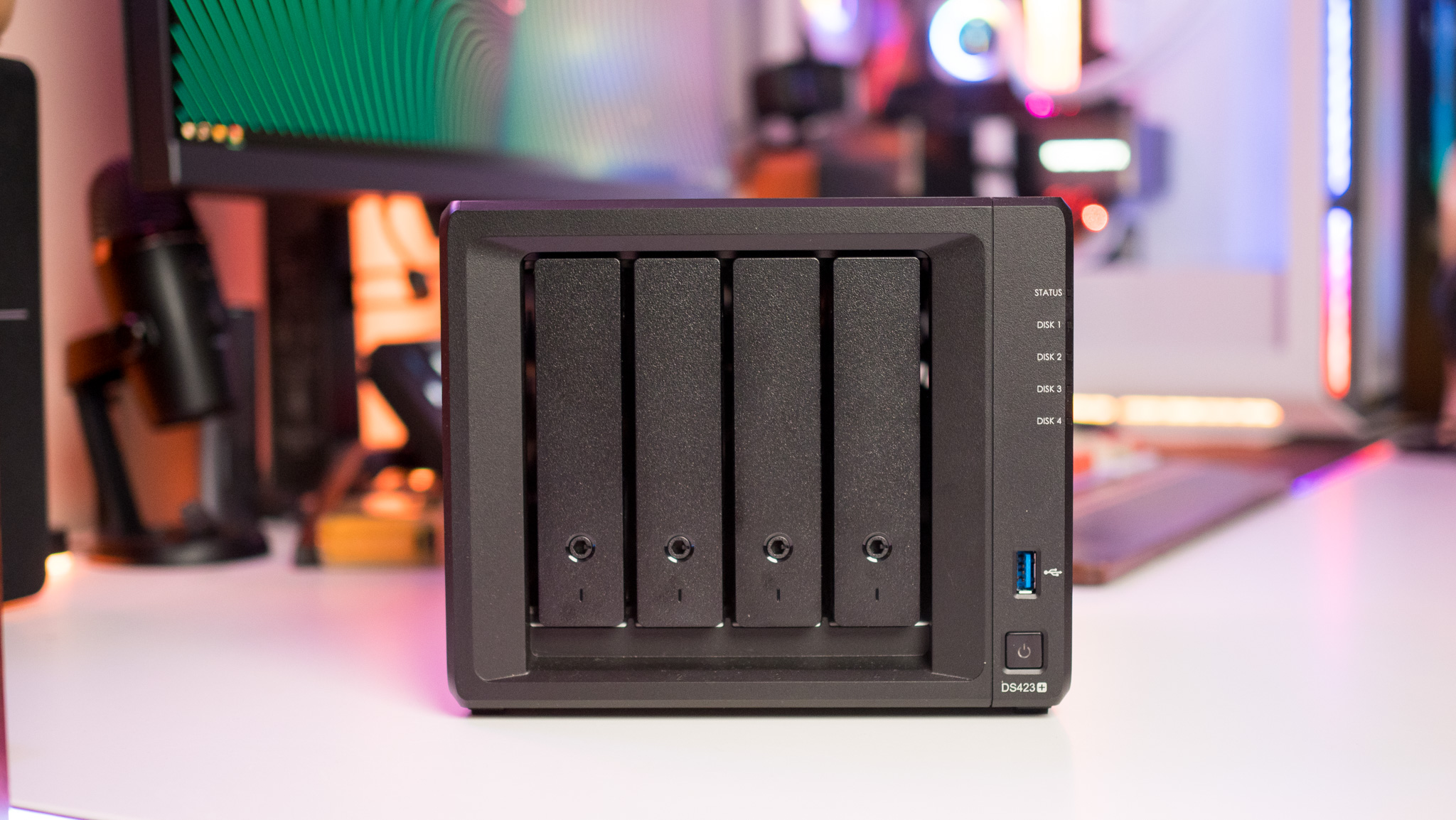
You should buy this if:
- You want hardware-assisted transcoding in Plex
- You need a reliable 4-bay NAS
- You want the best software features
You shouldn't buy this if:
- You need multi-Gigabit connectivity
- You want to add hard drives later
Ultimately, the DiskStation DS423+ is designed to fill a niche. By using the older Intel Celeron J4125 instead of the Ryzen R1600, Synology is catering to those users that need hardware-based transcoding. While it serves that utility considerably well, it isn't as good as the DS923+ or DS723+ in other areas; you miss out on the ability to add additional drives over eSATA, there's limited memory, and you cannot switch to a 10GbE networking card.
If you're on an older NAS server and have a sizeable Plex library that needs hardware transcoding, then yes, you should get the DiskStation DS423+. If you don't need the feature, you're better off looking at the other models in the brand's portfolio — the DiskStation DS423 is a better value, and the DS923+ gives you so much more at an additional $100.
The DiskStation DS423+ is essentially a DS920+ with limited memory, but it is still a good choice if you need a Plex server with hardware transcodes.







